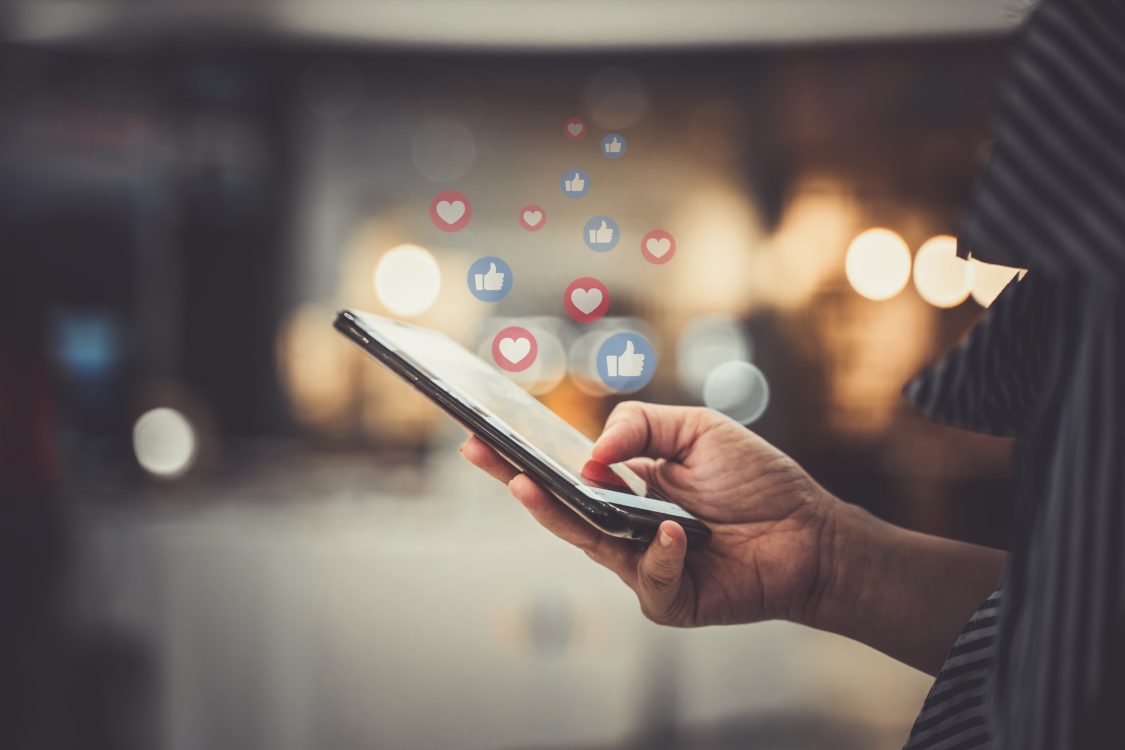
Read time: 3 mins
Written by Jack Anderson
According to the Global Digital Report 2019, UK adults are spending an average of 1 hour and 50 minutes on social media per day, with two in five Brits checking their phone within five minutes of waking up.
In this age of digital dependency, users are taking to social media to photograph, post and comment about their daily activities including everything from commuting complaints and what they ate for lunch, to their latest holiday snaps and what cute trick their pet learnt this week.
And now, businesses are turning to social media to not only showcase products and services, but to also find out more about its consumers, trends and sticking points through using social listening.
What is social listening?
Social listening is a way to open the door into the world’s largest focus group and gain people’s thoughts, opinions and emotions of your brand. It tracks conversations in the social sphere and therefore is a key component when it comes to the research and analysis of your audience’s needs and expectations.
What are the benefits of social listening?
Implementing social listening means you can monitor keywords relating to your brand in order to uncover conversations which may range from positive experiences to complaints.
This is an opportunity to up your customer service game to respond and rectify any issues whilst also keeping note of any recurring pain points.
On the other hand, even though many users take to social media to vent about their concerns and frustrations, a large group also post about how much they enjoyed an experience. Here is another opportunity to engage in a meaningful conversation while also receiving further feedback and encouraging a user to post about you again.
Social listening is also a great way to create content for your own channels, whether directly about your brand or an industry-wide conversation. If your audience is talking about it then you should be too!
And now with influencers flooding social media platforms, especially Instagram, 76 per cent of people would trust recommendations posted by average people over and above brands, so user-generated content (UGC) has become a must in social media strategies.
With social listening, businesses can easily discover who is talking about them, the best shareable content and identify a potential brand influencer or advocate. Companies such as Wayfair and Wilko are now actively seeking UGC by creating hashtags for people to use if they give permission for their content to be re-posted.
Monitoring your brand’s mentions and engagement is the perfect way to gauge your audience’s thoughts and sentiment. With this analysis, businesses can understand the needs and expectations of its consumer and tweak its strategy accordingly.
Plus, if there is a sudden change in tone of those mentions and engagements it’s simple to evaluate the potential reasons through what’s happened within the business or industry and what has been posted on social media through brand or consumer channels.
Consumers who were contacted by a brand following a complaint are 33 per cent more likely to go back and leave a positive review. Through social listening tools, brands can set up their main competitors as keywords to ensure their news, mentions, feedback and most importantly, their responses are monitored and readily available. With this information you can do a like-for-like comparison of what you’re doing well, what your competitors are doing and consumer opinion.
Lastly, social listening can help businesses drive sales. By monitoring conversations on competitors or questions about your own brand, you can respond accordingly to help drive a potential sale through. With the use of this tool, the appropriate platform and audience can be identified – for example, LinkedIn is responsible for 80 per cent of B2B leads on social media, whereas Facebook and Instagram have a more B2C focus.
If you need help with your brand’s social listening strategy, why not give us a call on 0113 394 4580?